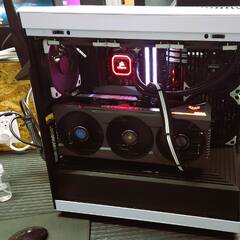Is transistor are important or speed?
The transistors are the basic components that form the building blocks of the CPU. They control the flow of electricity and can be used to form logic gates (AND, OR, XOR that kind of stuff) or memory cells, for example. These can then become bigger structures inside the CPU for computation, communication with other things etc.
7 hours ago, Aryan10 said:So where does show it’s performance in increase in no. Of transistors
I'm not sure what you mean with this. More transistors means more or bigger of those structures can be made and thus in principle more operations can be done each clock cycle. You just can't say a factor X more transistors will yield Y% more performance, because that depends on other things such as the clock speed and overall design as well.



















Create an account or sign in to comment
You need to be a member in order to leave a comment
Create an account
Sign up for a new account in our community. It's easy!
Register a new accountSign in
Already have an account? Sign in here.
Sign In Now